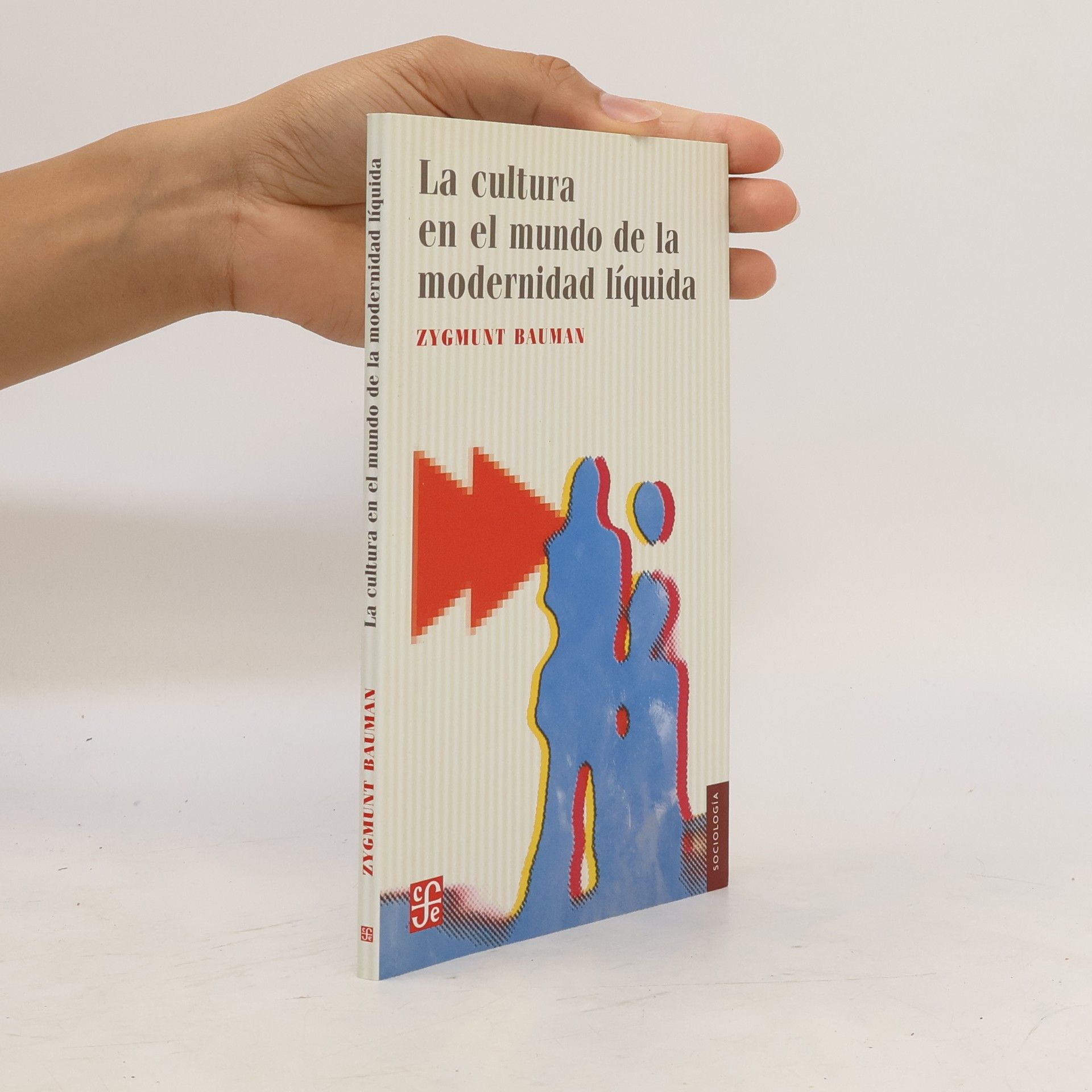CONTENIDO: Tiempo y clase - Guerras por el espacio: informe de una carrera - Después del estado nacional¿¿qué? - Turistas y vagabundos - Ley global, órdenes locales.
Zygmunt Bauman Libros
Zygmunt Bauman fue un sociólogo y filósofo polaco de renombre mundial y profesor emérito de Sociología en la Universidad de Leeds. Fue uno de los teóricos sociales más eminentes del mundo, escribiendo sobre temas tan diversos como la modernidad y el Holocausto, el consumismo posmoderno y la modernidad líquida, y fue uno de los creadores del concepto de «posmodernismo». Su obra ofrece profundas reflexiones sobre las transformaciones de la sociedad contemporánea y los desafíos que enfrentamos.







La Cultura en el Mundo de la Modernidad Liquida
- 101 páginas
- 4 horas de lectura
Bauman examina el momento en que la cultura pasó de ser el de un agente de cambio y se ha comportado como un medio de seducción al quedar marcada por la globalización, las migraciones y la mezcla poblacional. Mejor ejemplo de ello es Europa, en donde la cultura se revitaliza y comprende a través de la diversidad de razas, lenguas e historias.
Shadows of Fury
- 200 páginas
- 7 horas de lectura
A fatally ill woman is suffocated in her hospital bed. Her last visitor, Madeleine Reed, is accused of the crime. There are no witnesses. Madeleine cannot recall committing the murder and has no motive.
Tickling the Ivories
- 356 páginas
- 13 horas de lectura
Pianist and author Keith Jacobsen tells the story of his lifelong passion for the piano as performer and teacher from early childhood in post-war Liverpool to the present day.
Making the Familiar Unfamiliar
- 186 páginas
- 7 horas de lectura
The last interview of one of the greatest social thinkers of our time--
In this new book, Bauman examines how we have moved away from a 'heavy' and 'solid', hardware-focused modernity to a 'light' and 'liquid', software-based modernity. This passage, he argues, has brought profound change to all aspects of the human condition. The new remoteness and un-reachability of global systemic structure coupled with the unstructured and under-defined, fluid state of the immediate setting of life-politics and human togetherness, call for the rethinking of the concepts and cognitive frames used to narrate human individual experience and their joint history. This book is dedicated to this task. Bauman selects five of the basic concepts which have served to make sense of shared human life - emancipation, individuality, time/space, work and community - and traces their successive incarnations and changes of meaning. Liquid Modernity concludes the analysis undertaken in Bauman's two previous books Globalization: The Human Consequences and In Search of Politics. Together these volumes form a brilliant analysis of the changing conditions of social and political life by one of the most original thinkers writing today.
Liquid surveillance
- 152 páginas
- 6 horas de lectura
In today's world, the minutiae of our daily lives are monitored more closely than ever, often with our willing participation. Video cameras are commonplace in public spaces across major cities, while air travel now routinely includes body scanners and biometric checks, a trend that escalated post-9/11. Companies like Google and credit-card issuers track our habits and preferences, tailoring marketing strategies with our eager cooperation. In this fluid modern landscape, where crossing borders is routine and social media is omnipresent, individuals navigate life in a state of constant motion, often devoid of certainty and lasting connections. This dynamic environment fosters unprecedented surveillance that permeates areas once considered private. The analysis of surveillance by David Lyon intersects with Zygmunt Bauman's exploration of liquid modernity, raising critical questions about our future. Are we heading towards a bleak reality of constant monitoring, or can we still find spaces of freedom and hope? How do we acknowledge our responsibility towards others amidst the complexities of data and categorization? This insightful examination tackles issues of power, technology, and morality, offering a profound reflection on the implications of being both observed and observers in contemporary society.
Liquid Fear
- 188 páginas
- 7 horas de lectura
Modernity was supposed to be the period in human history when the fears that pervaded social life in the past could be left behind and human beings could at last take control of their lives and tame the uncontrolled forces of the social and natural worlds. And yet, at the dawn of the twenty-first century, we live again in a time of fear.
Liquid Life
- 224 páginas
- 8 horas de lectura
A new book by one of the most original and brilliant social thinkers of our time. * Extends and develops some of the key themes in other Bauman titles, namely what it is like to live in a time of 'liquid modernity', identity, culture and consumerism.
Consuming Life
- 168 páginas
- 6 horas de lectura
With the advent of liquid modernity, the society of producers is transformed into a society of consumers. In this new consumer society, individuals become simultaneously the promoters of commodities and the commodities they promote. They are, at one and the same time, the merchandise and the marketer, the goods and the travelling salespeople.

